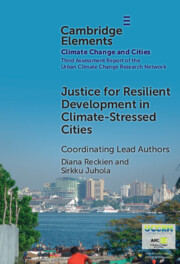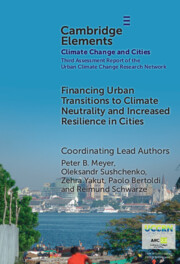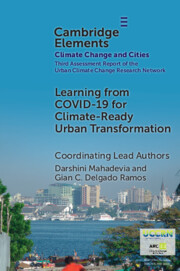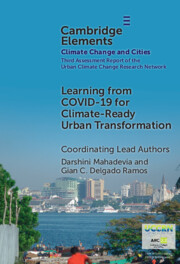Justice for Resilient Development in Climate-Stressed Cities
Climate impacts and risk, within and across cities, are distributed highly unequally. Cities located in low latitudes are more vulnerable to climate risk and impacts than in high latitudes, due to the large proportion of informal settlements relative to the housing stock and more frequent extremes. According to EM-DAT, about 60% of environmental disasters in cities relate to riverine floods. Riverine floods and heatwaves cause about 33% of deaths in cities. However, cold-waves and droughts impact most people in cities (42% and 39% of all people, respectively). Human vulnerability intersects with hazardous, underserved communities. Frequently affected groups include women, single parents, and low-income elderly. Responses to climatic events are conditioned by the informality of social fabric and institutions, and by inequitable distribution of impacts, decision-making, and outcomes. To ensure climate-resilient development, adaptation and mitigation actions must include the broader urban context of informality and equity and justice principles. This title is also available as open access on Cambridge Core.
Product details
February 2025Adobe eBook Reader
9781009587075
0 pages
Not yet published - available from February 2025
Table of Contents
- List of Contributors
- Series Preface
- Foreword I – Sheela Patel
- Foreword II – Eddie Bautista Major Findings and Key Messages
- 1. Framing Urban Justice with Equity, Informality, and Development in the Changing Climate
- 2. Differential Exposure: Risks and Impacts by Hazard Type
- 3. Differential Vulnerability: Drivers of Vulnerability and Intersectionality
- 4. The State of Adaptation and Equity, Development, and Informality Interactions
- 5. The State of Urban Mitigation and Equity, Development, and Informality Interactions
- 6. Equitable Urban Transitions and Transformations
- 7. Challenges and Future Research
- 8. Conclusions
- Appendix
- References.







